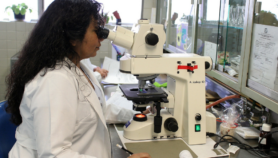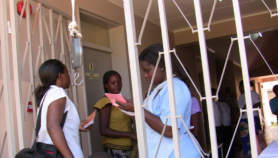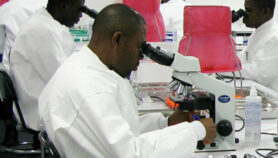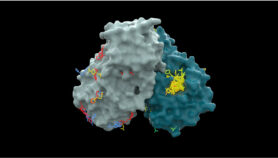By: David Dickson
Send to a friend
The details you provide on this page will not be used to send unsolicited email, and will not be sold to a 3rd party. See privacy policy.
A new report on the current state of science in Africa emphasises widely differing fortunes across the continent, but also underlines the opportunities for future improvement – providing governments listen to its message.
It's not unusual to hear scientists complaining that they are underpaid. Nor is it unusual to hear that declining government support for science in deference to market mechanisms has not been met by increased funding for research from other sources, in particular the private sector. But if such complaints are a familiar litany in Europe (and even occasionally the United States), the problems encountered in such countries pale in comparison to those currently being experienced in many parts of Africa.
With aid policies towards the continent now under the international spotlight, it is both useful and timely to be made aware just how bad these latter problems can be. Figures just released by the Paris-based Institut de Recherche pour le Développement (IRD) do just that. Taken from a series of reports 'Science in Africa at the Dawn of the 21st Century' commissioned by the French government and the European Commission in Brussels, the picture they paint is grim (see 'Poor pay threatens African science'). More positively, however, the reports also hint at a possible way forward, one that uses the experience of other parts of the world (particularly Europe) to develop a strategy appropriate to the massive challenges that African science now faces.
Bleak patches
Certainly it will take a large amount of effort to eliminate the many bleak patches in the current panorama. For example, a survey of science researchers in 15 African countries carried out for the IRD reports found that in those working to Sub-Saharan Africa (apart from South Africa), more then 90 per cent complained of being underpaid. Many said they have to supplement their earning with part-time employment in other sectors, such as working in farming or running small businesses, a commitment which inevitably places severe limits on their scientific productivity.
Furthermore, as the report points out, a significant reduction in government support for science in many African countries over the past two decades — the results of a variety of political and economic pressures — has left deep scars. This has been particularly true in countries such as Nigeria which, as a result the lack of apparent interest of a series of regimes in either higher education or long-term economic growth (an approach now being reversed), has seen a 50 per cent decline its output of scientific literature during the 1990s.
A chapter in the forthcoming Unesco Science Report 2002, written partly by the two main authors of the IRD reports, puts the situation succinctly. It points out that a number of recent surveys of scientific publishing among African countries lead to the same conclusion: that during the first half of the 1990s, a time when research budgets in the North were climbing steadily, "Africa has lost 20 – 25 per cent of its relative capacity to make contributions to world science" — and that was already from a low base.
Bright spots
But the picture in Africa is not all gloomy. The IRD report points out, for example, that for all the country's current economic uncertainty, science in South Africa continues to be productive, even if (as in Egypt) at a static level. Indeed, in some countries the progress has been impressive. This is particularly true of the countries such as Morocco, Algeria and Tunisa that lie along Africa's Northern coast, known collectively as The Maghreb, which saw an increase in scientific production — measured in terms of scientific publications — of 60 per cent over the 1990s.
What are the lessons that can be learnt from this? As the authors of the IRD report indicate, one is the need for a sustained political commitment on the part of governments to provide not only adequate financial support for research laboratories, but also an active encouragement for science as a tool of social policy, integrating it into political and economic decision-making at all levels. It is this approach that has been partly responsible for the success of the Maghreb, a success which now needs to be repeated elsewhere.
Secondly, it seems clear that those African countries whose science is prospering most are the ones that have been able to adapt to what has been called the 'new mode of scientific production'. This is an approach which recognised that the old distinctions between basic and applied research are no longer valid, and that the key to a viable and self-sustaining scientific community is to be able to link its projects and goals to locally-determined priorities, but in a way that 'frames' research programmes rather than rigidly dictates them.
The final lesson is that regional and international cooperation can be highly beneficial, if not essential, and that funding (including foreign assistance) can be most effective when it is not fragmented, but supports integrated regional efforts. The IRD report points to the way in which the European Commission's Framework programme has successfully achieved such collaboration, helping to boost scientific publications by almost 50 per cent over a period in which African publications have only grown by 6.5 per cent. Perhaps it is time for Africa to take a leaf out of Europe's book.
'La Science en Afrique à l'aube du XXIe siécle', a series of reports produced under the direction of Roland Waast and Jacques Gaillard, IRD, Paris, 2001-2002.
'Africa', in World Science Report, J. Gaillard, M. Hassan and R. Waast, Unesco, Paris, 2002 (in press).
© SciDev.Net 2002













